Rebuilding chronic disease care using conversational AI
What happens between clinic visits determines success. Aide helps your patients self-manage multiple chronic conditions and improves adherence at scale.
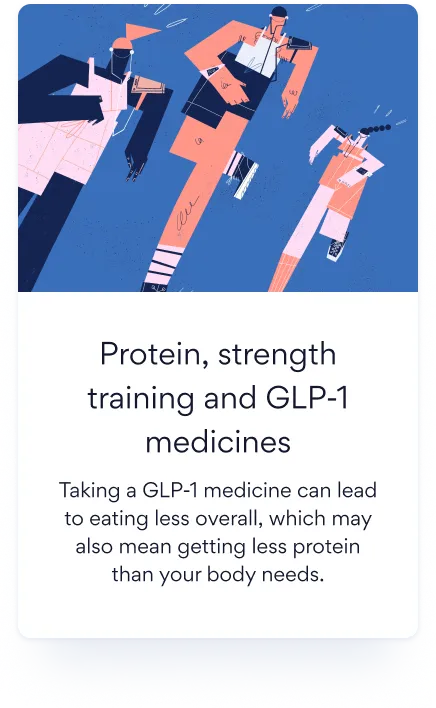

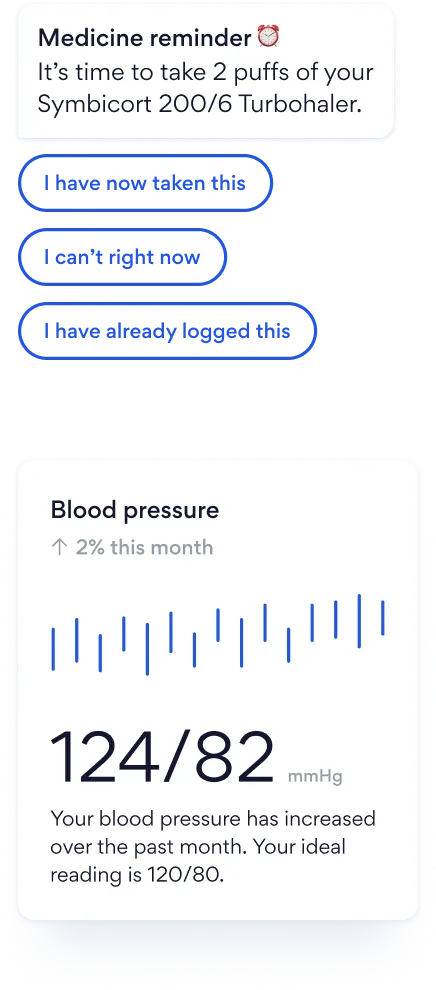
What happens between clinic visits determines success. Aide helps your patients self-manage multiple chronic conditions and improves adherence at scale.



Globally, approximately one in three adults live with two or more chronic conditions. Hajat et al., 2018 In just five conditions, medical non-adherence is estimated to cost NHS England £1 billion per year. Elliott et al., 2013 of all GP appointments and 70% of inpatient bed days are related to chronic disease. Williams et al., 2018

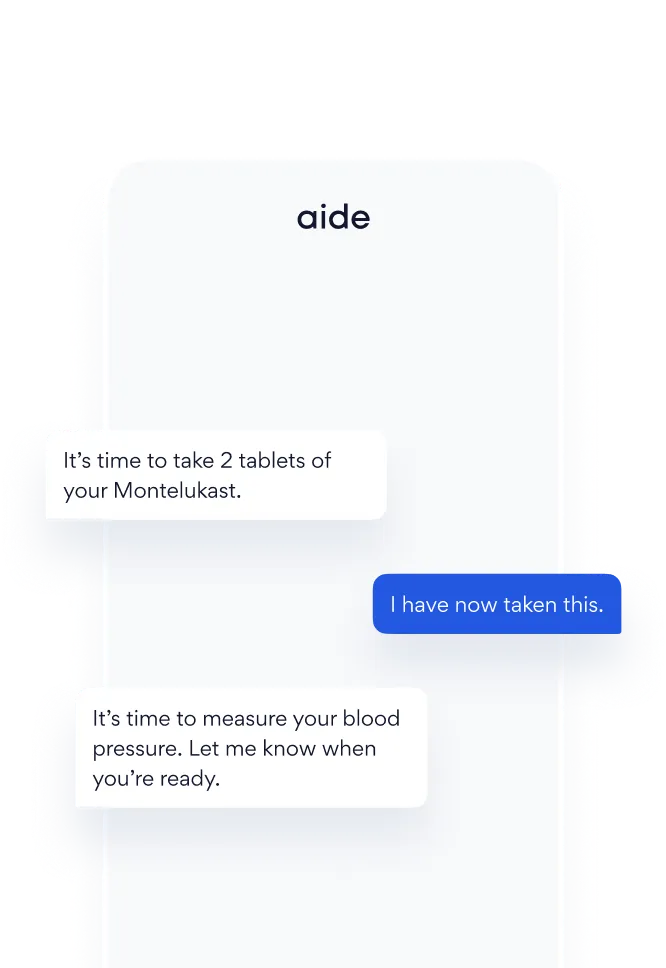

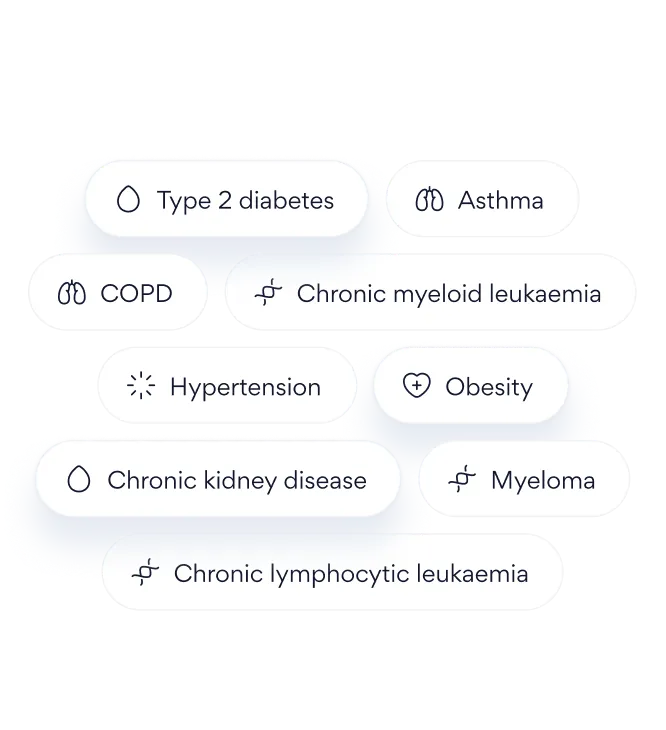

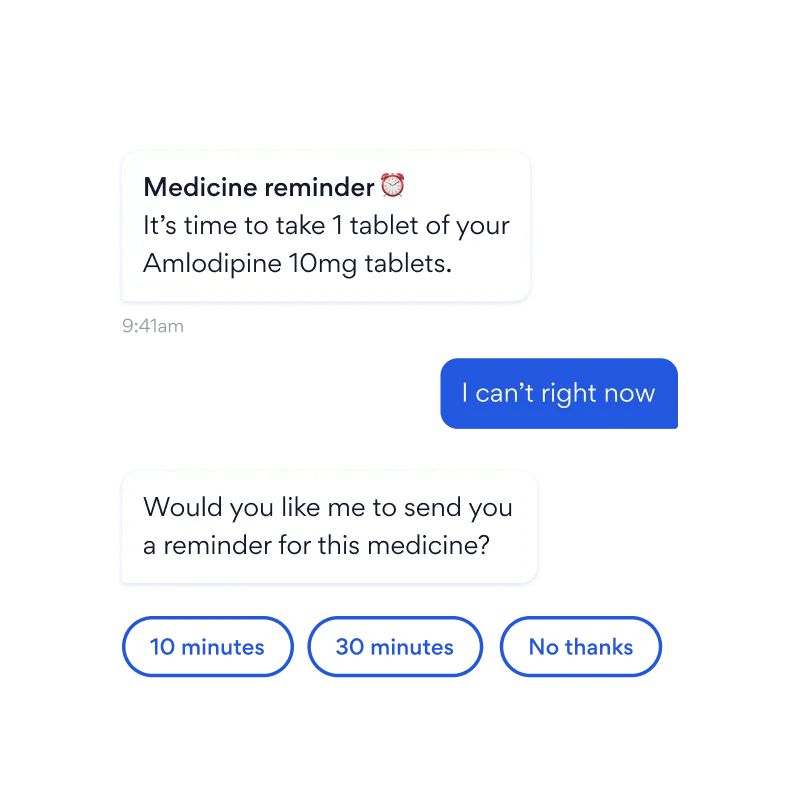
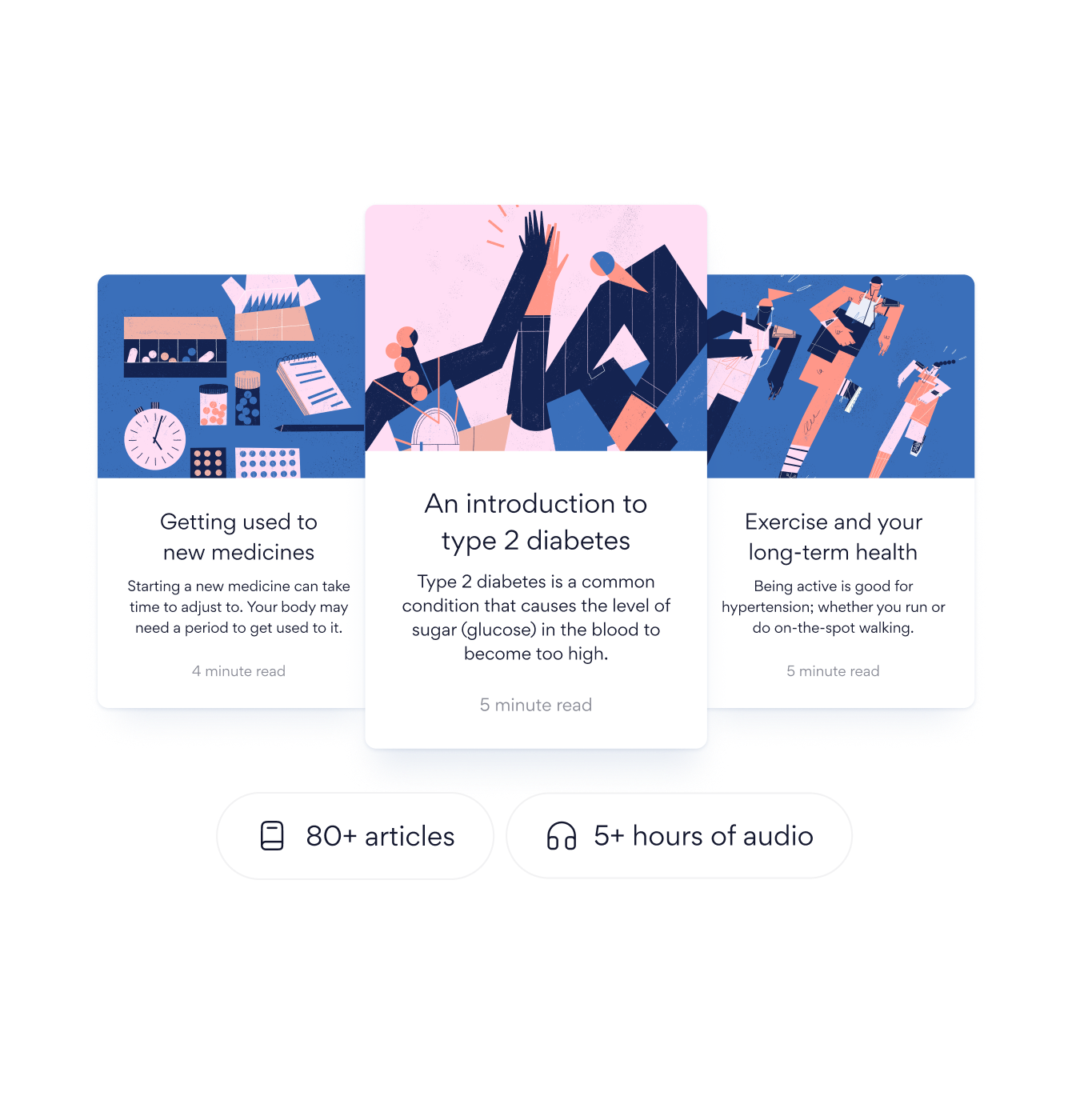
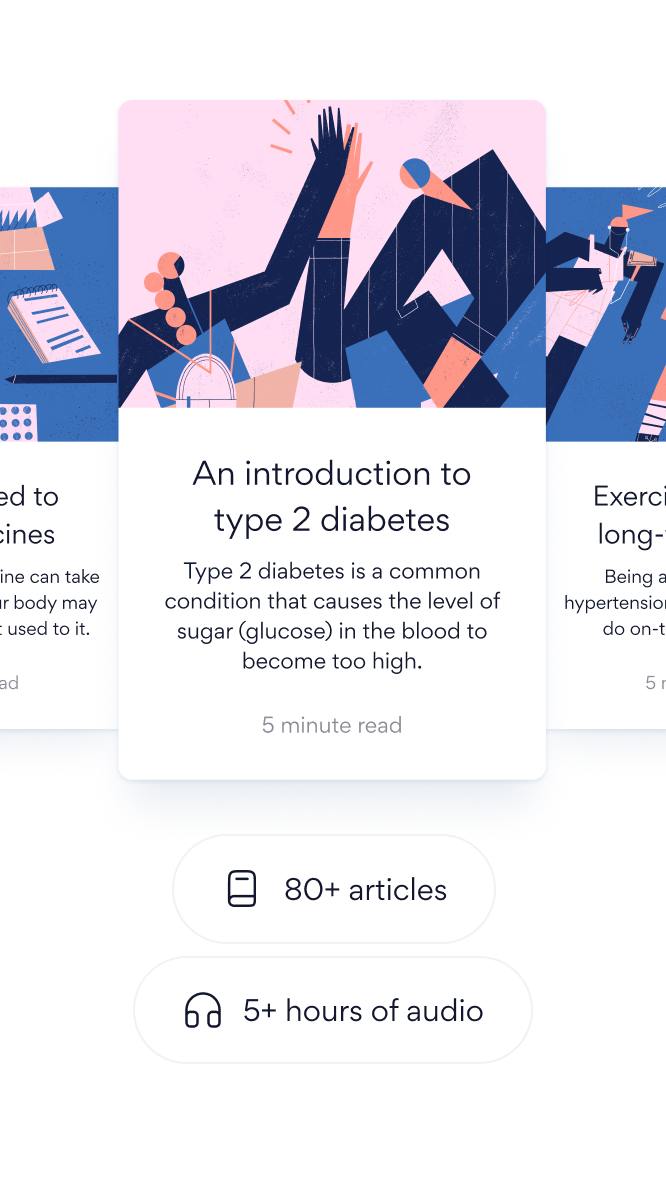



“
I haven’t had an asthma attack in months since using this app because now I’m keeping records and getting reminders to take my medication. I used to forget to take my medication a lot more. It’s the most controlled my asthma has been. I’ll be carrying on using the app for the rest of my life because my asthma’s not going to go anywhere.”